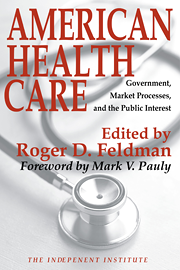Merck’s recall of Vioxx has led to calls for reform of the FDA’s drug approval process. While it’s true that the FDA’s approval process should be changed to better insure the health of all Americans, the question is what kind of reform is needed. In order to make the drug approval process more effective, we must first understand the problems facing the pharmaceutical market.
Many critics of the pharmaceutical industry point to the sale of “unsafe” drugs and the delay in recalling drugs, such as Vioxx, as an argument for creating a PASDA or “Post Approval Drug Safety Agency” to continue monitoring drugs after they have hit the market.
Others believe that FDA policies make approval too difficult, not too easy. Every scientist who has studied the FDA carefully has found that delays in approval, mostly since the FDA policy change in 1962, which required approval for effectiveness as well as safety, have led to increased numbers of deaths. That is, more people have died waiting for drug approval than have been saved by having “safer” drugs available. One estimate is that the benefits of FDA safety regulation are between 500 and 1000 injuries (not deaths) avoided per year, while the cost of FDA delay is between 2,100 and 12,000 lives lost per year because of the unavailability of useful drugs during the approval process.
Patients have also lost out because the expense of drug approval means that some other wise promising drugs will not be worth developing at all. And the high cost of the FDA approval process, about $800 million per approved drug, means that once approved, drugs are more expensive than would be the case if the FDA process were quicker and cheaper.
If the response to the Vioxx episode leads to increased delays and costs in approval of new drugs, then this real problem in the industry will become worse. More consumers will suffer because of slower approval of new drugs, and some will suffer additionally because some drugs will not be worth inventing and developing, given the high cost of the process. The cost and hence the price for approved drugs will also increase.
An additional problem that many see in the pharmaceutical market is the high price of drugs, particularly the difference in price between the United States and Canada. While there are many reasons for this difference, one study has found that about one-half of the disparity in price is caused by the higher cost of litigation in the U.S.
These three problems—delay in recalling harmful drugs, slow and expensive approval of new drugs, and price differentials caused by litigation—seem unrelated, but they could be solved by a coordinated set of policies:
1. Create a PADSA, with the responsibility for monitoring drugs that have been approved and removing harmful drugs such as Vioxx from the market. Such drugs would then be recalled sooner, and any harm would be limited.
2. Because there would be less danger if a harmful drug is approved, since the PADSA would detect harmful drugs sooner, there would be less need for pre-marketing scrutiny of drugs, and we could return to a situation where the FDA examined drugs for safety but not effectiveness, allowing the market and the PADSA to determine which safety-approved drugs would be sold. This would lead to more drugs being developed and sold, and to lower prices for drugs. The PADSA would ensure that the overall safety of drugs would not be reduced.
3. Finally, because the PADSA would remove harmful drugs from the market, we would not need to rely on tort lawyers to discover unsafe drugs. Thus, the role of the tort system could be reduced, and FDA approval could become a “safe harbor” protecting approved drugs from lawsuits.
This set of coordinated policies, adopted together could go a long way towards improving the functioning of our pharmaceutical market and could provide more drugs at lower prices and reduced risk for consumers. If handled properly, the Vioxx incident could lead to reforms that will provide great benefits for consumers; if handled poorly, it may lead to great harms.









